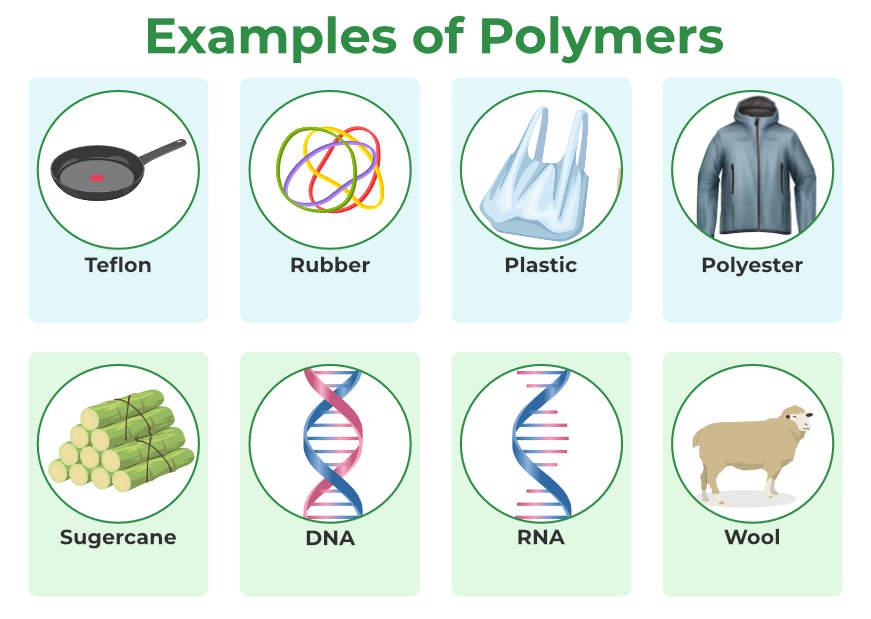Latest Advancements in Polymers: Cutting-Edge Modern Technology
Latest Advancements in Polymers: Cutting-Edge Modern Technology
Blog Article
Checking Out the Varied Applications and Advantages of Polymers in Different Industries
Polymers, with their varied array of homes and capabilities, have actually ended up being crucial in numerous industries, each enjoying special benefits from their application. From boosting safety and security and efficiency in the automobile industry to transforming clinical devices in the medical care sector, polymers play a pivotal role.
Automotive Industry Applications
Polymers play a critical function in boosting the performance and longevity of different elements within the automobile field. These functional products are thoroughly utilized in the manufacturing of different parts, ranging from interior components to under-the-hood applications. One famous use polymers in the auto sector is in the production of lightweight components. By replacing traditional metal components with polymer-based alternatives, cars can attain improved gas performance without compromising on toughness or security.

Healthcare Industry Advantages
In different healthcare applications, the advantages of making use of polymers are commonly acknowledged for their diverse range of advantageous properties. Polymers play an essential duty in the healthcare sector because of their convenience, biocompatibility, and cost-effectiveness. Among the primary benefits of polymers in medical care is their capability to be customized to specific needs, such as adaptability, longevity, and biodegradability, making them suitable for a vast array of clinical applications.
Polymer-based materials are extensively used in clinical tools, such as catheters, implants, prosthetics, and medicine distribution systems, because of their biocompatibility and ability to mimic natural tissues. These products can minimize the threat of sensitive reactions or rejections, boosting person safety and outcomes. Furthermore, polymers are light-weight, making them appropriate for wearable medical tools and ensuring individual convenience.
In addition, polymers make it possible for the growth of ingenious treatment techniques, such as hydrogels for tissue design and nanocomposites for targeted medication distribution. Their ease of processing find out here now and sanitation makes them important for maintaining high criteria of hygiene in medical care settings. In general, the varied benefits of polymers add dramatically to developments in clinical modern technology and individual care.
Ecological Advantages of Polymers

Furthermore, polymers can add to power financial savings because of their light-weight nature. In markets such as transportation, lightweight polymer products can aid reduce gas usage and greenhouse gas emissions. Additionally, polymers can enable the development of energy-efficient products such as insulation products that boost energy conservation in buildings.
In addition, polymers play a crucial duty in lowering water contamination. The usage of polymer-based purification systems can efficiently remove toxins and impurities from wastewater, protecting water sources and ecological communities. On the whole, the environmental benefits of polymers make them beneficial assets find out this here in advertising sustainability and eco-friendly techniques across different markets.
Polymers in Electronic Devices and Modern Technology
Considering the boosting demand for cutting-edge and lasting services in modern industries, the combination of sophisticated polymer technologies in the realm of electronics and innovation has actually become a pivotal approach for driving performance and performance. Polymers have actually transformed the electronic devices market by allowing the manufacturing of lighter, much more versatile, and resilient digital tools. From smartphones to clinical devices, polymers play a vital function in boosting product design and functionality.
One considerable advantage of polymers in electronics is their insulating residential or commercial properties, which help secure delicate electronic parts from environmental aspects and electric interference. Additionally, polymers are essential in the advancement of flexible screens, wearable innovation, and printed electronic devices, supplying unlimited possibilities for creating smart and interconnected gadgets.
Additionally, the use of polymers in electronic product packaging has led to improvements in see miniaturization and thermal management, boosting the overall efficiency and dependability of digital systems. As technology remains to advance, the adaptability and versatility of polymers will most certainly drive further innovation in the electronic devices sector, forming the future of technology.
Role of Polymers in Construction and Infrastructure
Polymers use various benefits in the building and construction market due to their flexibility, sturdiness, and cost-effectiveness. One vital duty of polymers in building and construction is their usage in finishings and sealants, offering protection versus environmental variables such as dampness, UV radiation, and deterioration.
Furthermore, polymers play an important duty in sustainable building and construction methods by making it possible for the development of energy-efficient frameworks. Shielding products made from polymers aid control indoor temperature levels, decreasing the demand for home heating and cooling systems and inevitably lowering energy consumption. Additionally, the usage of polymer-based composites in infrastructure jobs such as bridges and roads improves their durability and lowers upkeep expenses. Generally, the incorporation of polymers in building and infrastructure displays their considerable effect on contemporary design methods.
Conclusion
In final thought, polymers play a critical duty in different markets such as automobile, health care, environmental, electronic devices, and building and construction. From enhancing gas performance in vehicles to improving clinical tools, polymers provide numerous benefits.
Report this page